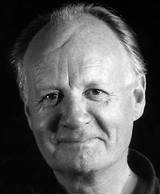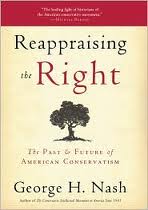
Paul Helm on N.T. Wright

The older I get the more and more thankful I am for scholars who are willing to state the truth and state it plainly. Paul Helm is such a scholar, and I am thankful for him. In this post Helm offers some critical comments on N.T. Wright, whom Helm believes is being a tad evasive in answering a basic question. Helm for a number of years taught at King's College London, and currently is associated with both Regent College (Vancouver), and--I believe--with Highland Theological College in Scotland. His blog is a wonderful resource, and one I turn to often. He has written some significant volumes, one of the most important--to my mind--is his Eternal God: A Study of God without Time, 2nd edition (Oxford, 2010).
- Details
- Category: Recommended Reading Recommended Reading
- Published: 29 May 2011 29 May 2011
- Hits: 4160 4160
Peter Leithart on Augustine and Secular Order
Peter Leithart is, to my mind, one of our finest theological thinkers. In this post, he offers a few brief words on Augustine on the nature of political order. Leithart is arguing (and believes Augustine argues the same essential way) that the church and civil realms both--in their unique ways--conduct themselves in ways that bring glory and honor to God. The state is not "secular" while the Church is not. If "secular" has to do with time and not place (and Leithart follows John Milbank here), and if the secular realm is the pre-eschatological fulfillment realm, then both church and state are "secular" in that they exist in this time, which is a time when the eschatological kingdom has not come in its fullest.
- Details
- Category: Recommended Reading Recommended Reading
- Published: 26 May 2011 26 May 2011
- Hits: 4380 4380
The Intellectual Journey of Joseph Sobran

When I meet a senior scholar or someone who has been at life for a while, one of the questions I usually get around to asking deals with their reading and own intellectual development. In particular I usually ask something like, "What did you read that really helped you, or changed you, or marks you?" Similarly, I am intrigued with a person's intellectual development, and shifts and twists over time. I am particualarly intrigued when someone's intellectual journey has taken them down a road which will not benefit them in terms of career, financial gain, prestige, etc. These people are rare. The academy is filled with sycophants and a variety of persons who spend their time posturing and jockeying for position. Early on in my own development I stumbled upon Joseph Sobran. Sobran died in 2010, and I was sad that he had passed. I discovered a book of his essays, Single Issues: Essays on the Crucial Social Questions, and it galvinized my already fairly-strong pro-life convictions. Sobran was a major player at National Review until his convictions ran him afoul of William F. Buckley. This linked essay traces his intellectual development over time, and is fascinating. Sobran made a big mistake; he read the Constitution and took it seriously. And he was willing to question the orthodoxy of his day. May his tribe increase.
- Details
- Category: Recommended Reading Recommended Reading
- Published: 09 May 2011 09 May 2011
- Hits: 4350 4350
George Nash and Reappraising the Right

For those interested in the kind of things I have been posting on lately, another book by George Nash might be of interest. George Nash has written, Reappraising the Right: The Past and Future of American Conservatism (ISI, 2009). The book is divided into five sections: (I) Conservatism Reappraised: Traditions, Institutions, Books, People; (II) William F. Buckley, Jr. and the Advent of National Review; (III) Conservatism and the American Jewish Community; (IV) Herbert Hoover: A Neglected Conservative Sage; (V) Whither Conservatism. These chapters are lectures, speeches, essays, etc. given/written by Nash. For my conservative friends who think there might be something askew with the "conservatism" of the last twenty years, and for my liberal friends who suspect the various forms of statism and centralized power that liberals tends to advocate might not be as attractive as they once thought, Nash's book might be of interest. Happy reading!
- Details
- Category: Recommended Reading Recommended Reading
- Published: 07 May 2011 07 May 2011
- Hits: 3925 3925